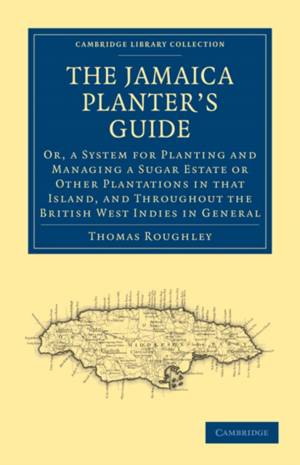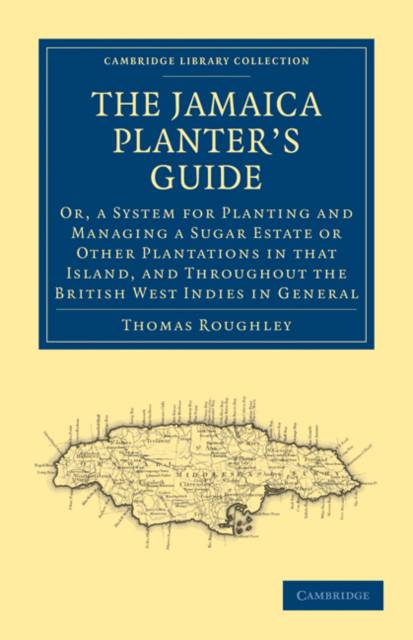
Je cadeautjes zeker op tijd in huis hebben voor de feestdagen? Kom langs in onze winkels en vind het perfecte geschenk!
- Afhalen na 1 uur in een winkel met voorraad
- Gratis thuislevering in België vanaf € 30
- Ruim aanbod met 7 miljoen producten
Je cadeautjes zeker op tijd in huis hebben voor de feestdagen? Kom langs in onze winkels en vind het perfecte geschenk!
- Afhalen na 1 uur in een winkel met voorraad
- Gratis thuislevering in België vanaf € 30
- Ruim aanbod met 7 miljoen producten
Zoeken
The Jamaica Planter's Guide
Or, a System for Planting and Managing a Sugar Estate or Other Plantations in that Island, and Throughout the British West Indies in General
Thomas Roughley
€ 95,45
+ 190 punten
Omschrijving
Thomas Roughley published this Guide in 1823, based on his own experience. The book is an important source on Britain's richest colony, where the sugar trade had reached its peak production around 1810. At a time when the abolition of slavery was a major issue, Jamaican planters were particularly concerned, as so much of their activity was based on slave labour. The book deals with all aspects of running a sugar plantation profitably, the chapter on the work force being particularly interesting. He outlines each role necessary for the effective estate, and criticises the 'slanders' of philanthropists regarding the mistreatment of slaves, referring to the strict laws for their protection: since the importation of new slaves had been banned since 1807, it was all the more necessary for owners to look after their workforce's health and welfare. Roughley shows that well-run plantations were highly complex agricultural and economic units.
Specificaties
Betrokkenen
- Auteur(s):
- Uitgeverij:
Inhoud
- Aantal bladzijden:
- 436
- Taal:
- Engels
- Reeks:
Eigenschappen
- Productcode (EAN):
- 9781108024303
- Verschijningsdatum:
- 16/12/2010
- Uitvoering:
- Paperback
- Formaat:
- Trade paperback (VS)
- Afmetingen:
- 140 mm x 216 mm
- Gewicht:
- 548 g

Alleen bij Standaard Boekhandel
+ 190 punten op je klantenkaart van Standaard Boekhandel
Beoordelingen
We publiceren alleen reviews die voldoen aan de voorwaarden voor reviews. Bekijk onze voorwaarden voor reviews.









